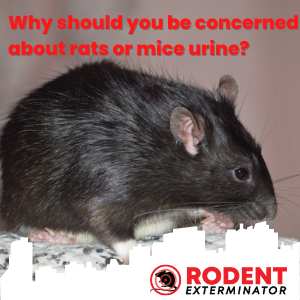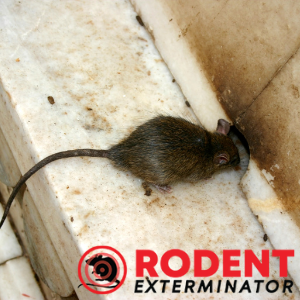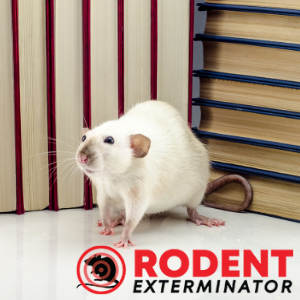Mouse and rat urine can be a major problem in both residential and commercial buildings. Not only is the urine unsightly and smelly, but it can also be dangerous to humans.
Rat and mouse urine can contain harmful bacteria and viruses, so it’s important to know the health risks generated by being near these wastes.
Rodents pee anywhere. This implies they defecate and urinate frequently as they walk around.
Unlike humans, rodents remove their excreta as soon as they create it.
Mice, rats, and other rodents can carry diseases that are transmissible to people.
Direct contact with sick mice and contaminated soil, food, and water can spread these diseases. Although these illnesses are rare, people should take precautions to reduce their risk.
 Is mouse or rat urine harmful to humans?
Is mouse or rat urine harmful to humans?
Yes, mouse or rat urine can be harmful to humans
People get infected after coming into contact with contaminated rat urine, droppings, or saliva, and their risks rise when they are near rodents that are actively alive.
Some of the most common and deadly diseases in humans from contact with rodent urine are:
-
Hantavirus.
Rodents, especially deer mice, carry the hantavirus. Although the virus can be identified in their pee and feces, it does not make the animal sick.
HPS is a dangerous respiratory disease spread by infected rodents through their urine, droppings, or saliva. When humans breathe in an inhalation virus, they can catch the disease.
Although not all rodents carry the virus, it is difficult to distinguish between mice and other rodents, so all rodents should be avoided.
People may become ill if they come into contact with or breathe the dust from rodent droppings (feces) or urine.
-
Salmonellosis.
Food poisoning is a form of salmonellosis.
When a rat or mouse walks through its droppings or pee and subsequently goes through human food, bacteria from the droppings and urine can contaminate the meal, potentially making someone sick if they eat the infected food unintentionally.
Can the smell of mouse or rat urine be harmful?
Yes, the smell of mouse or rat urine can be harmful. Mouse or rat urine contains a protein that can cause allergic reactions in some people.
These reactions can range from sneezing and a runny nose to asthma attacks and skin rashes.
In extreme cases, exposure to mouse urine may even cause death.
When people breathe in hantaviruses, they develop HPS. When hantavirus-infected rodent urine and droppings are churned up into the air, this can happen.
People can also become infected if they come into contact with the virus-containing mouse or rat urine, droppings, or nesting materials and then touch their eyes, nose, or mouth.
How long does mouse or rat urine remain infectious?
The length of time that the virus lives in mouse urine can depend on several factors, including the type of virus, the environmental conditions, and the age and health of the mouse or rat.
Generally speaking, most viruses can survive in urine for days or weeks.
However, some viruses may be able to survive for months or even years in mouse urine.
This can be a major concern for people who are exposed to urine, as they may be at risk for developing a virus infection.
 How do you spot rodent urine?
How do you spot rodent urine?
Rodent urine can be difficult to spot, but there are a few ways to tell if you’re dealing with it:
-
Look for the characteristic smell.
The urine has a strong, musky odor that can be difficult to disguise.
Rat urine is generally stronger than mouse urine.
The odor of rodent urine is strong and musky. You can smell it when there are significant infestations.
-
Check for rodent droppings.
Droppings are black and about the size of a grain of rice.
They are usually found in areas where rodents have been active, such as near food sources or in dark, secluded areas.
-
Look for their nests:
Mice will create their nests indoors by shredding paper, rope, and other pliable materials.
Norway rats build their nests in deep tunnels in the ground. Roof rats like to build their nests in attics, trees, or dense vegetation above ground.
-
Pet behavior:
When pets hear or smell rats in the house, they tend to act strangely. They may appear agitated, bark, or start pawing at gaps beneath refrigerators, stoves, or low-clearance furniture.
In this case, dogs will be alert if they smell the unpleasant odor of urine from these rodents.
Do mice or rats leave traces of urine?
Yes, they do. Mice and rats leave traces of urine as a way to mark their territory.
The urine contains pheromones that send out messages to other rodents and any other animal that might happen upon its scent.
Male and female rats often scatter urine drips all over the place to advertise their sexual availability.
Rats and mice leave their waste such as saliva, droppings, urine, and blood everywhere. And you can find these unpleasant surprises even in your drains!
What color is rat or mouse urine?
In general, mouse urine tends to be light yellow or pale brown, while rat urine is typically a darker brown.
The color of the urine can also be affected by the age and health of the rodent.
Young rodents typically have light-colored urine, as their kidneys are not yet fully developed. This means that they are not able to produce as much urine as adult rodents.
As a result, the urine of young rodents is less concentrated and contains less nitrogen than the urine of adult rodents.
How long does mouse or rat urine smell last?
The smell of mouse urine can last for quite a while, especially if the area has not been properly cleaned.
The smell is difficult to get rid of and can linger in the air for months.
It is important to remove all of the soiled material and clean the area thoroughly to get rid of the smell.
How do you clean mouse or rat urine?
 Since you have read the health risks generated by direct contact with the urine of these rodents, you must follow the following instructions to avoid any contagion:
Since you have read the health risks generated by direct contact with the urine of these rodents, you must follow the following instructions to avoid any contagion:
- Rubber or plastic gloves are recommended.
- Use a disinfectant or a bleach-water mixture, spray urine and droppings.
- Make sure the urine and droppings are quite wet.
- Allow for a 5-minute soak.
- Wipe up any urine or droppings with a paper towel.
- Dispose of the paper towel in the trash.
- Using a disinfectant spray
- Use a disinfectant or bleach solution, mop, or sponge the area.
- Before removing gloves, wash them with soap and water or spray them with a disinfectant or bleach solution.
- After removing your gloves, wash your hands with soap and warm water.
Note: mouse or rat urine, droppings, or nests should not be swept or vacuumed up. Virus particles will be released into the air, where they can be inhaled.
However, to avoid direct contact or less effective cleaning, the best thing you can do is hire professional exterminators that include the cleaning service.
Rodent Exterminator is a reliable company that has the best services that include extermination, cleaning, and decontamination of all the areas where these rodents have been. Don’t worry about cleaning up the urine anymore, leave it to us! Call us 213-431-0890
